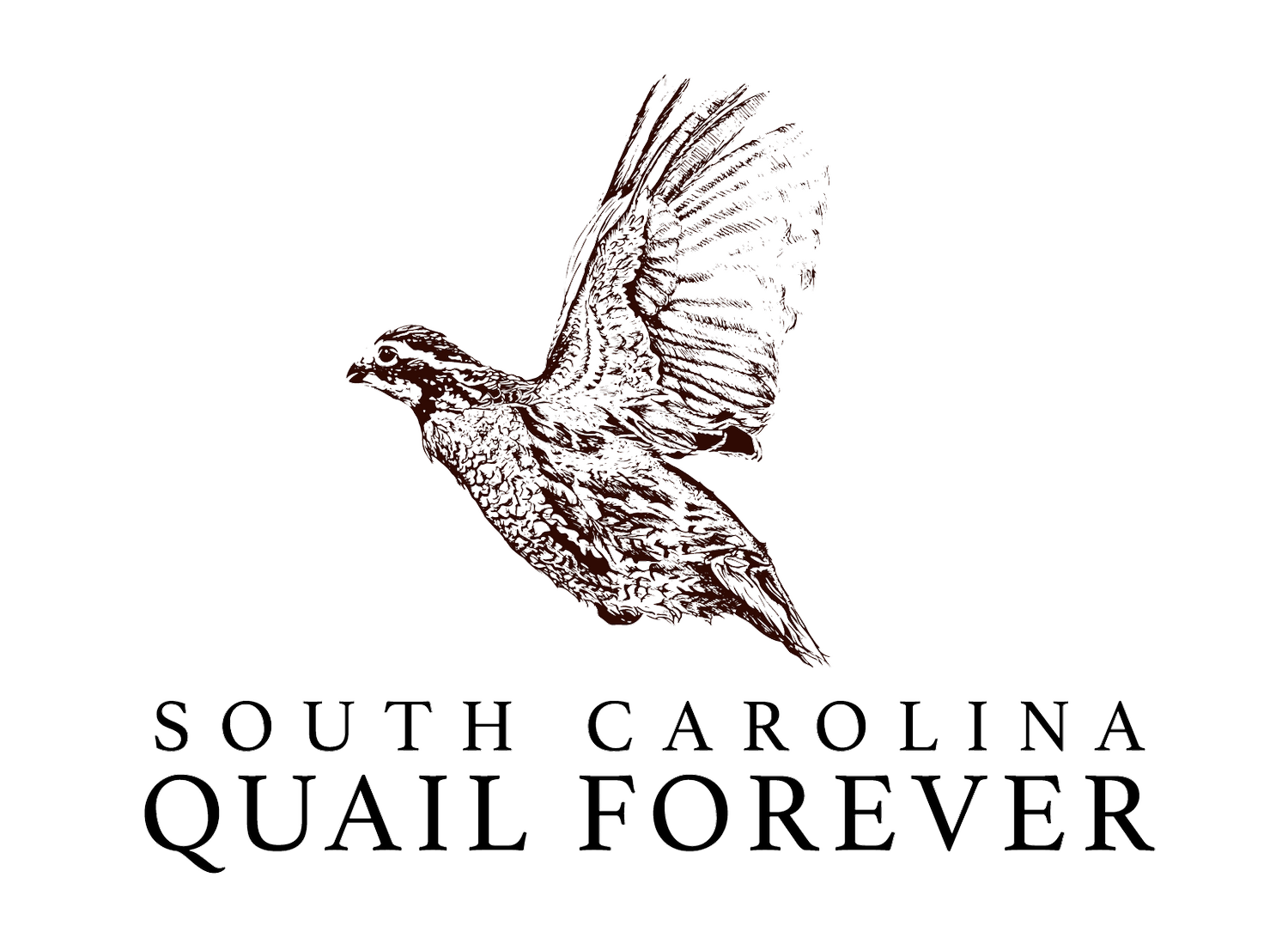Public support needed to halt demise of SC quail population
Written by: Tim Askins for the Post & Courier
September 14, 2020
Were Archibald Rutledge alive today, I picture him hosting a dinner at his Hampton Plantation on the Santee surrounded by the Francis Marion National Forest. That dinner might include Havilah Babcock, Henry Edward Davis and Charley Dickey. These fine scribes of Southern sporting life lived and wrote in the heyday of the “Prince of Game Birds” when “the whistle” was heard from every hedgerow and young boys became men walking beside their fathers and the dogs. Bird dogs were as much a part of the scene at Hampton as the venison, roast wild turkey, stuffed ducks and fried quail served for dinner.
Today, these men would doubtless lament the plight of the bobwhite quail. They would point to the many circumstances leading to his demise from “clean” farming to endangered species protections to everything in the woods likes to eat a quail. They might wonder what happened to the family farms with fence rows and overgrown field corners. When did everyone quit burning the piney woods? Who’d ever have thought to trap a ‘coon or ’possum only to let it go? But those factors form the sad state of the noble little bird’s native habitat throughout the Southeast today.
Fortunately, there are groups intent on righting the ship and restoring the bobwhite to its rightful stature. In Charleston, the Lowcountry Quail Forever chapter has focused efforts on improving habitat for bobwhite quail in the state’s Francis Marion National Forest. The 258,000-acre forest is 20 miles north of Charleston, and has been managed by the U.S. Forest Service since 1936. Of that total acreage, the chapter has 4,000 acres in the Price Landing area under management specifically for bobwhite, all available for public access.
The work includes mosaic burning on a 2- to 3-year rotational basis as well as food plot and brood rearing establishment. The chapter has created brood-rearing habitat on about 80 wildlife openings, each consisting of 2 to 3 acres. These brood-rearing areas are critical for bumblebee-size quail chicks to navigate while foraging. “Quail habitat restoration is not just beneficial for quail, but for all upland wildlife including songbirds, turkey, rabbits and the threatened red-cockaded woodpecker,” said chapter President Kenneth Shuler.
Today, based on these successes, the Forestry Service is considering that an additional 50,000 acres be made available for quail-centric management. Success in coming years depends on bolstering the membership, fundraising and gaining a critical mass of support from the public. Engaging the public — leveraging talents, enthusiasm and in many cases their hands — is the goal. Quail forever has partnered with groups state wide including the S.C. Bob White Initiative, U.S. Fish and Wildlife, The Longleaf Alliance and the S.C. Forestry Commission. However, success depends largely on the private sector.
Fortunately, local landowner and conservationist Willie McRae has realized the potential and has partnered with Lowcountry Quail Forever to help fund the work. His recent efforts to preserve Boone Hall Plantation was widely heralded as the most significant conservation easement in a lifetime for Charleston County. McRae backed most of the project by donating property that had development rights valued at an estimated $28 million. “I have been waiting my whole life to make this conservation easement a reality,” McRae said. “It makes me really happy to know that many generations to come can grow up and come back to the plantation where everybody should be able to enjoy it.”
McRae also recognizes that landscape-size habitat restoration projects require combining diverse people and organizations spread across many points on the map. Lowcountry Quail Forever is uniquely positioned to play that role in “bringing back the whistle” in South Carolina by organizing those forces.
The group recently announced a gala at the Cotton Dock at Boone Hall Plantation on Valentine’s evening, Feb. 14, 2020. The event will feature a Lowcountry barbecue and oyster roast complete with live and silent auctions. All of the funds stay in the community. Go to Lowcountry Quail Forever’s Facebook page for more information.
Tim Askins is a natural resources and wildlife advocate who divides his time between his farm near Andrews and his home in Mount Pleasant.
